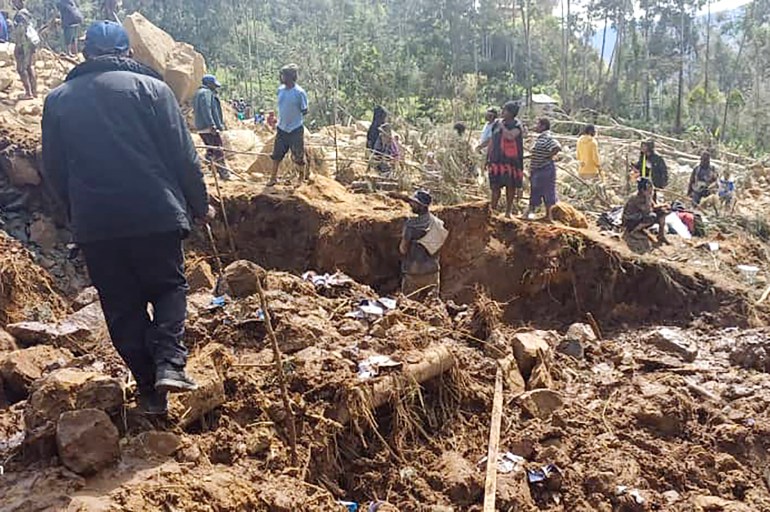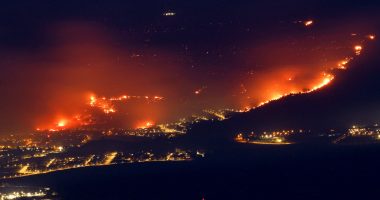The UN’s migration agency says displaced residents urgently need clean water, purification tablets and food supplies.
Papua New Guinea has ruled out finding more survivors under the rubble of last week’s massive landslide, as a UN agency warned of a “significant risk of disease outbreak” among displaced residents, who are yet to receive sufficient supplies of food and clean water.
Six days after a mountainside community in Enga province was buried in a sea of soil, boulders and debris, the United Nations’ migration agency (IOM) said on Thursday that water sources had become tainted and the risk of disease was soaring.
Much of the area’s water flows through the landslide site – now a 600 metre-long (1,970 feet) graveyard of a still undetermined number of people.
“The creeks now flowing from the debris are contaminated, posing a significant risk of disease outbreak”, the UN’s migration agency told partners in a rapid assessment report.
“There are no methods being used to treat the water to make it safe for drinking,” it said, warning of diarrhoea and malaria.
For much of the past week, residents of villages affected by the landslide have been digging through countless tonnes of earth in the search for buried relatives.

Witnesses reported the stench of dead bodies had become overwhelming.
“No bodies are expected to be alive under the debris at this point, so it’s a full recovery operation to recover any human remains,” Enga province disaster committee chairman Sandis Tsaka told the Reuters news agency.
Officials and rescuers only managed to recover 11 bodies. At least two people had survived and were rescued three days after the disaster.
More than 2,000 people may have been buried alive, according to the country’s government.
A UN estimate put the death toll at about 670, while a businessman and former official told Reuters that it was closer to 160.
‘Treacherous terrain’
According to IOM, getting clean water, purification tablets and “lifesaving food supplies” to the site are the top priorities of the agency.
But heavy equipment and aid have been slow to arrive because of the treacherous mountain terrain, a damaged bridge on the main road, and tribal unrest in the area.
Tsaka said it has not been possible to get such machinery, engineers or technical offers to the site yet “because of the risk of unstable land movement”.
Aid agencies and foreign donors are also concerned that unreliable estimates about the number of dead, injured and displaced are complicating the international response.
“The absence of accurate and timely information on the affected areas and population hinders effective planning and delivery of humanitarian assistance,” the IOM warned.
Satellite imagery experts, disaster relief professionals, and Papua New Guinea’s officials and diplomats have all told the AFP news agency that the 2,000 death toll provided earlier by the government is likely vastly inflated.
Tsaka, the Enga provincial administrator, said on Thursday that the number of dead was probably in the “hundreds” rather than thousands.
He said traumatised survivors have been unable to provide reliable information on loved ones who are still missing.
With some key teams still struggling to reach the disaster zone, he said Papua New Guinea’s response workers were “keeping our heads above water”.
Read More: World News | Entertainment News | Celeb News
Aljazera








